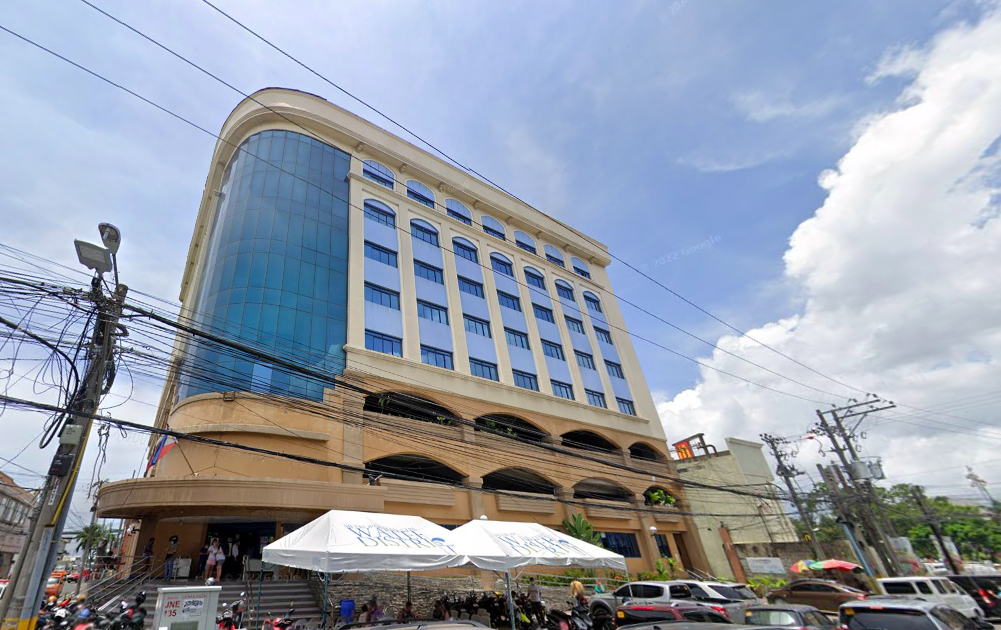
Metropolitan Cebu Water District (MCWD) in Magallanes St., Cebu City / via Google Maps
CEBU CITY, Philippines – It is not only the Cebu Bus Rapid Transit (CBRT) that is facing an ongoing political crisis but also the Metropolitan Cebu Water District (MCWD), which is experiencing a never-ending conflict over authority.
This follows the recent announcement from the Local Water Utilities Administration (LWUA), which has assumed control over MCWD’s policy-making functions for a period of six months starting March 15, 2024.
Previously, it can be recalled that the ongoing leadership dispute arose when City Mayor Michael Rama removed three board of directors from their posts and appointed three new members.
However, the LWUA intervened and stated that local executives did not have the authority to remove board members, thereby resulting to the incumbents to stay in their posts.
And now, approximately five months later, another leadership intervention has occurred.
READ: LWUA takes over MCWD’s policy-making functions for six months
While Lawyer Jose Daluz III, the chairman of MCWD, initially declared on February 25 his intention to comply with whatever decision LWUA, particularly under the leadership of its newly appointed administrator, would make, he later shifted his stance.
On March 18, three days after the partial intervention of LWUA started, MCWD General Manager Edgar Donoso, alongside the members of the board of directors, including Daluz, and employees, announced that they would adopt a status quo stance.
“In view of this, and for the time being, we therefore cannot yet acknowledge LWUA’s authority on this intervention / take-over and appointment of an Interim Board of Directors,” Donoso said in a letter to LWUA administrator Jose Moises Salonga dated March 18.
A “status quo stance” refers to a position or attitude of maintaining or preserving the current situation or state of affairs.
READ: MCWD adopts ‘status quo’ amid LWUA’s partial intervention
Lawyer Jose Daluz III, chairman of the Metropolitan Cebu Water District (MCWD), declares “Status Quo Stance” in a press conference on Wednesday, March 20. | CDN Photo / Pia Piquero
In a press conference on March 20, Daluz addressed the adoption of a “status quo” approach for the agency, stating that he could not abandon the employees and would “stand with them.”
He argued that the LWUA’s partial intervention lacks “legal validity and justification.”
According to Daluz, LWUA can only take over a water district under two circumstances: during emergencies or if the district defaults on its financial obligations to LWUA due to a loan.
Consequently, since neither of these situations had occurred, Daluz added, there was no legal basis for the takeover.
“The only ground that LWUA can take over a water district is when there is an emergency; if there’s a default in the financial obligation of MCWD when there’s a loan to LWUA. Wa mana nahitabo (Those did not happen) so there is no legal ground to take over,” he noted.
Daluz said that, along with adopting the status quo of the agency, the board also passed several resolutions.
The first resolution was the board’s recognition of the status quo declared by MCWD managers, officers, and employees, showing solidarity with them.
READ: Marcos names new LWUA administrator
Daluz emphasized the continuation of the dry spell and the impending drought.
“It is up to the management now [as] the board has given them provisional authority to do whatever means is necessary within the bounds of law to arrest this deficit,” Daluz said.
The third resolution was to draft a letter to the Office of the Government Corporate Counsel (OGCC) seeking assistance and legal opinion regarding LWUA’s takeover.
He clarified that LWUA could only intervene in emergencies or if MCWD defaults on loans, which had not occurred.
Lastly, the final resolution addressed the behavior of Police Officer Ireneo Dalogdog and his team.
Daluz expressed concern about their attempts to enter MCWD premises outside office hours in improper attire.
The board sought clarification on their role and why they insisted on entry, especially when there was no apparent crime.
They questioned whether their role was simply external security and emphasized that they could not demand entry or conduct searches on the premises.
“Is there a crime happening there? Nganong escort naman ni sila sa LWUA? And why are they insisting on going up sa among premises? Maybe, sa gawas lang tingali kay ilaha ng role tingali to escort but they cannot insist to go up and murag mag search diha sa atong mga premises,” he said.
(Is there a crime happening there? Why are they now escorts of LWUA? And why are they insisting on going up in our premises? Maybe, outside, perhaps, because they are their escorts, but they cannot insist to go up and acting like they searched our premises.)
Meanwhile, Daluz claimed that City Mayor Michael Rama might have influence over police powers within the vicinity of MCWD.
“I think Mike is actively involved with this [and] ang iyang gimahayan lang sa LWUA kay nagtuo siya nga ang iyahang mga appointees maoy e-install when in fact, dili diay. So, I think that is the difference there,” he said.
(I think Mike is actively involved with this [and] what he just regretted with LWUA is that he believed that it should have been his appointees, who would be installed, when in fact, it is not them. So, I think that is the difference, there.)
For now, while awaiting the OGCC’s response, Daluz said that he would avoid visiting their main office to prevent any potential agitation and stressed the need to wait for the OGCC’s response before proceeding with any further action.
The OGCC, which operates under the Department of Justice (DOJ), serves as the mandated legal advisor for government-owned corporations like the Local Water Utilities Administration (LWUA) and MCWD. /with reports from Niña Mae Oliverio